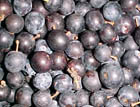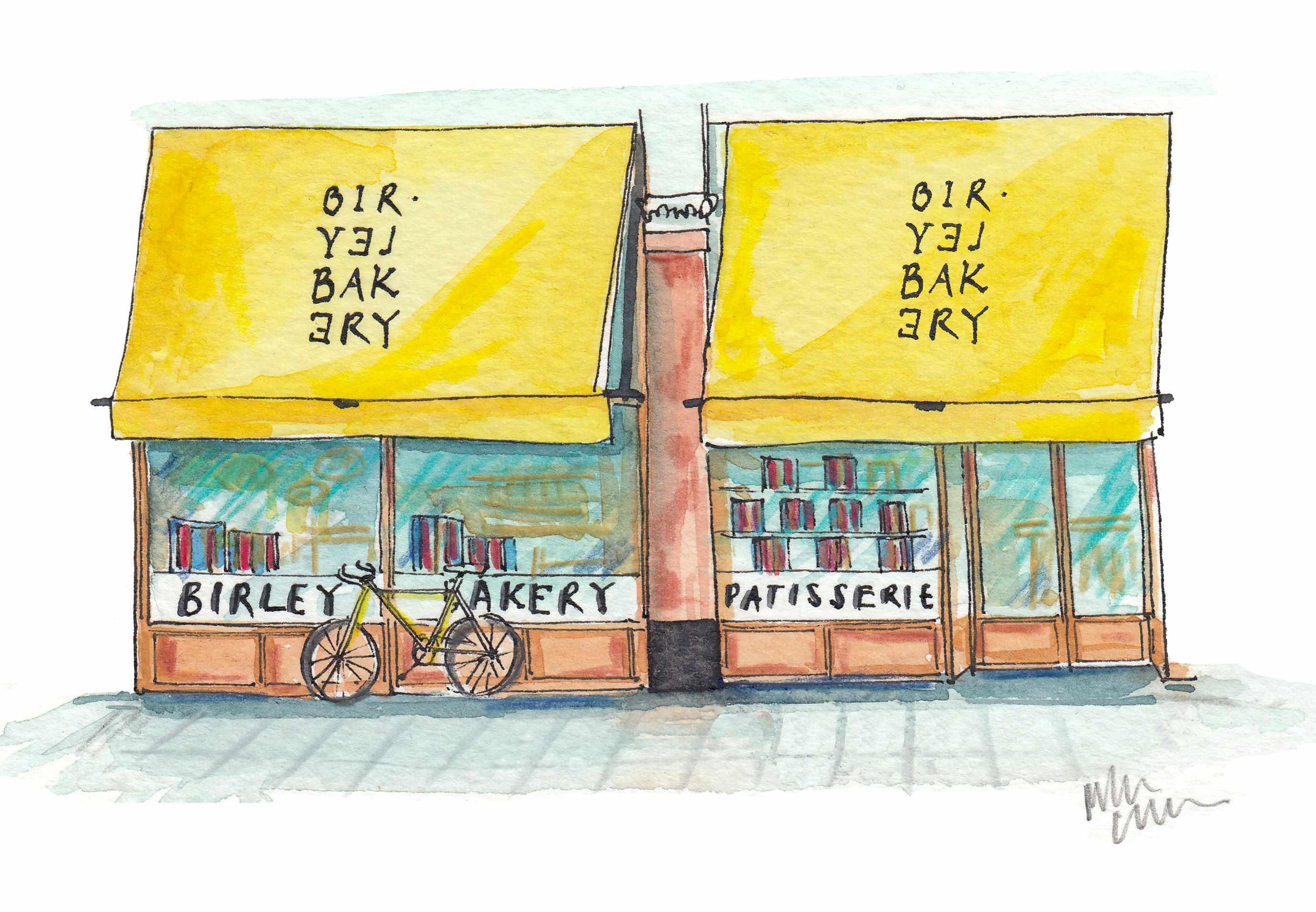Sloe Motion
Sloes, as their name suggests, are in no particular hurry. The blackthorn is the last shrub in the hedgerow to bear fruit. But is nature simply saving the best till last?


Blackthorn is blossoming in hedgerows across the country and for tenant farmer Jonathan Curtoys, this pre-empts a good harvest. 'I am an expert in sloe economy', he says, 'sloes are now the most profitable crop on the farm.' But profiting from the blackthorn's olive-sized fruit carries a hefty price. 'There is no other option than to hand pick sloes - they are pretty labour intensive,' he explains. And picking is only the first stage of the production process.
'Yes, don't try eating them,' he warns, 'they are extremely unpalatable. Not even the wildlife like them.' Probably a good thing for Mr Curtoys whose company Sloe Motion is bringing in a healthy income from the berries: 'Sloes are an unusual product',he maintains, 'But they have always been covered in alcohol ever since medieval times. I just saw a good opportunity.'
But the sloe gin, chocolate and whisky that he is producing, in no way compromises the wildlife in the hedgerows - in fact it enhances it. 'Ethical farming is an important part of our brand,' he explains, 'we strive to look after the wildlife and to improve the conditions in which it lives.' This is done using practices that are the antithesis of modern farming techniques. The hedges at Manor Farm are allowed to grow out; ?neatness and tidiness are not priorities of ours,' Mr Curtoys explains. ?Hedge cutting can do a heck of a lot of damage.' These days the swathes of grass flanking the hedges are full of wild flowers, not crops and the blackthorn branches out onto the verges.
It was Mr Curtoys' father that inspired Sloe Motion. 'My father used to make things with sloes. Everyone's always soaked sloes in gin but my father used to melt a bar of chocolate and mix in the sloe pulp from the gin.' According to Jonathan, sloe whisky is even nicer than sloe gin, 'it has a really nice rounded taste.' But Manor Farm has leant itself perfectly to sloe production. 'The land at Manor Farm is particularly suited to growing sloes,' Mr Curtoys says, 'The farm owner would kill me for saying it but sloes grow well on poor land,' There are 15 miles of hedgerow but Mr Curtoys buys in sloes from other local farms. 'It is great; other farms have started using my farming techniques and letting their hedges grow out. There has already been a spreading of impact.' He pays local people by the kilo for their own sloes and is already planning importing sloes from other counties to produce different variations of his products.
Sloe Motion uses the most flavourless whisky and gin so as not to interfere with the taste of the sloes. The berries are soaked in the alcohol for a couple of months, giving the sloe flavour plenty of time to seep out. Then pulp is removed and the highest quality Belgian chocolate is melted down and smothered around it. 'Working with chocolate is a real art, it is something you have to learn,' says Mr Curtoys. All the production takes place on the farm itself - by hand. 'This helps to add value,' he maintains. But he assures that making the products is all good fun.
'The picking is definitely the hardest bit,' he says. 'You're at the mercy of the weather and the thorns on the blackthorn are pretty sharp.'
As summer approaches, Mr Curtoys is praying there will be no late frost, destroying the blossoms. 'This can be a real problem as it kills the fruit,' he explains. Meanwhile he is using the blossoms to map out where to harvest the berries in October. Although the products are often associated with Christmas time, Mr Curtoys is finding there is demand all year and increasing amounts of delicatessens, food fairs and markets are supplying them. 'The chocolates are great when you're out shooting, they give you a real buzz,' he says.
Sign up for the Country Life Newsletter
Exquisite houses, the beauty of Nature, and how to get the most from your life, straight to your inbox.
But for him it is most important that the sloe goods prove a point about the English countryside. 'I hope we are inspiring people to think about other products out there in the British countryside,' he says. 'I love the countryside and I want to give it worth in people's eyes. The good thing about our product is that it reflects the ideals of the supplier.'
Country Life is unlike any other magazine: the only glossy weekly on the newsstand and the only magazine that has been guest-edited by HRH The King not once, but twice. It is a celebration of modern rural life and all its diverse joys and pleasures — that was first published in Queen Victoria's Diamond Jubilee year. Our eclectic mixture of witty and informative content — from the most up-to-date property news and commentary and a coveted glimpse inside some of the UK's best houses and gardens, to gardening, the arts and interior design, written by experts in their field — still cannot be found in print or online, anywhere else.
-
 'That’s the real recipe for creating emotion': Birley Bakery's Vincent Zanardi's consuming passions
'That’s the real recipe for creating emotion': Birley Bakery's Vincent Zanardi's consuming passionsVincent Zanardi reveals the present from his grandfather that he'd never sell and his most memorable meal.
By Rosie Paterson
-
 The Business Class product that spawned a generation of knock-offs: What it’s like to fly in Qatar Airways’ Qsuite cabin
The Business Class product that spawned a generation of knock-offs: What it’s like to fly in Qatar Airways’ Qsuite cabinQatar Airways’ Qsuite cabin has been setting the standard for Business Class travel since it was introduced in 2017.
By Rosie Paterson